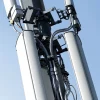Internet Users Only Keeping a UK Fixed Phone Line for Broadband
Do we still need a fixed line telephone (voice) service? A new ISPreview survey of 1,911 readers has found that only 14.5% still use a landline phone service for making most of their calls and 67.2% said they’d get rid of it if the service wasn’t still needed by most ISPs for home broadband.
Perhaps unsurprisingly the vast majority of respondents (76.8%) said that most of their phone (voice) calls were now being made via a Mobile and 8.5% voted the same for Voice-over-IP (VoIP) platforms, such as Skype. Unfortunately getting rid of the old fixed phone service has been difficult because some organisations still won’t accept non-landline numbers and such services are often unavoidably bundled by default with broadband.
It’s interesting to note that we asked the same question (i.e. ‘which do you use most for making voice calls?‘) all the way back in 2013 and the change is notable. Back then 62.3% picked Mobile, followed by 29.8% for landline phone and just 6.6% chose VoIP. Clearly Mobile has grown in popularity, while the desire for landline phone services continues to decline.
Advertisement
The survey also noted that future 5G based Mobile Broadband may technically be good enough to replace fixed line broadband and indeed many modern 4G providers (location dependent) are already able to offer faster data speeds than a lot of ADSL and hybrid fibre (FTTC) lines. However, 47.9% felt as if the limited data allowances of existing 4G plans were still the main reason why it had been unable to replace fixed lines for broadband.
Which do you use for making most of your phone (voice) calls?
Mobile – 76.8%
Landline Phone – 14.5%
VoIP – 8.5%Would you get rid of your fixed line phone service if it wasn’t needed for broadband?
Yes – 67.2%
Maybe – 13.3%
No – 10.8%
I already have! – 8.4%Future 5G Mobile services may be good enough to replace fixed line broadband. Which aspects of service prevent 4G from doing this today?
Data allowances – 47.9%
Price – 18.1%
Service speeds – 13%
Unsure – 10.2%
Other – 7%
Other traffic limits – 3.4%
At present all of the major Openreach (BT) based ISPs and some of the smallest players require you to take a fixed line phone service (PSTN / POTS), usually as part of a bundle, when signing up for a home broadband connection. Both signals (phone and data) tend to be carried over the same physical copper line and you generally get the phone service installed first, before broadband goes live or at the same time.
The good news is that it shouldn’t be too long before everybody is able to order a fixed line broadband connection without the phone service (i.e. the voice side will become optional). Firstly, the new generation of “full fibre” (FTTH/P) ISPs and many fixed wireless providers (e.g. Relish Wireless) already sell their broadband as standalone products. Virgin Media’s cable network can also do the same.
Secondly, Openreach’s forthcoming Single Order Generic Ethernet Access (SOGEA) solution will also make standalone broadband products possible over their copper line network, with the phone service becoming an optional add-on (a reverse of the current approach). We note that a number of ISPs (e.g. AAISP) are already able to offer a cut-down bundle services without the voice component but SOGEA should simplify it.
Advertisement
The bad news is that anybody expecting to save money by purchasing a SOGEA based standalone broadband connection is likely to be disappointed. In reality the cost of adding a voice (phone) component to an existing copper or hybrid fibre line is small and ISPs may need to recoup lost calling revenues from elsewhere. Put another way, simply cutting out the phone side of things won’t make much of a difference to the overall price you pay.
Meanwhile this month’s new survey asks whether or not the reputation of a broadband provider impacts your choice of ISP? Vote Here.
NOTE: ISPreview.co.uk surveys are likely to receive a higher proportion of tech-savvy respondents than most, although the majority of our visitors are normal consumers (i.e. they come to this site for help and assistance with basic broadband problems / questions or when hunting for a new ISP).
Mark is a professional technology writer, IT consultant and computer engineer from Dorset (England), he also founded ISPreview in 1999 and enjoys analysing the latest telecoms and broadband developments. Find me on X (Twitter), Mastodon, Facebook, BlueSky, Threads.net and Linkedin.
« ISPA Name Finalists for the 2018 UK ISP Internet Industry Awards

















































Comments are closed